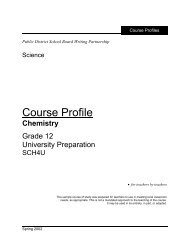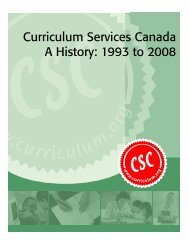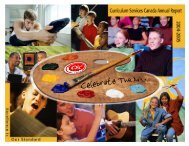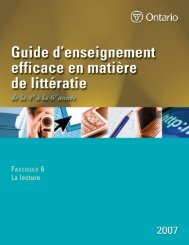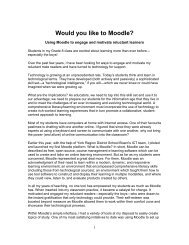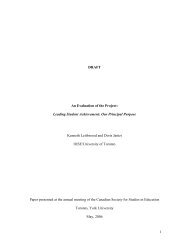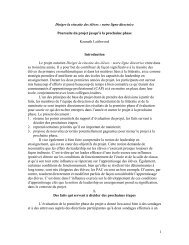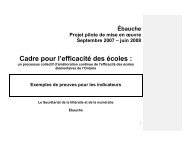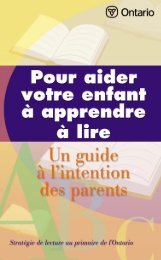Course Profile - Curriculum Services Canada
Course Profile - Curriculum Services Canada
Course Profile - Curriculum Services Canada
Create successful ePaper yourself
Turn your PDF publications into a flip-book with our unique Google optimized e-Paper software.
Assessment/Evaluation<br />
Formative Assessment<br />
• informal and formal teacher observation<br />
• response journals<br />
• choral reading via a checklist<br />
• analysis questions<br />
Summative Evaluation<br />
• anthology of student selected poems with personal responses<br />
• collection of personal poetry<br />
Resources<br />
a poetry anthology, e.g., Poetry in Focus, Prism of Poetry, Departures<br />
a dictionary of poetic terms<br />
the Psalms<br />
Activity 1: Learning the Tools of the Trade: A Dictionary of Poetic Terms and<br />
Devices<br />
Time: 60 minutes<br />
Description<br />
In this activity students become familiar with introductory poetic devices which help them in their study of<br />
poems. Students appreciate the evocative power of language to reflect who they are and the ability of<br />
words to help them become both reflective and creative thinkers.<br />
Strand(s) and Expectations<br />
Ontario Catholic School Graduate Expectations:<br />
5a - work effectively as an interdependent team member;<br />
7j - contribute to the common good.<br />
Strand(s): Literature Studies and Reading, Writing, Language<br />
Overall Expectations:<br />
LIV.03B - identify and explain the effect of specific elements of style in a variety of literary and<br />
informational texts.<br />
Specific Expectations:<br />
LI1.06B - use specific references from a text to support opinions and judgments.<br />
Planning Notes<br />
• Have a number of texts available with a variety of literary terms.<br />
• While this activity is used to introduce students to relevant poetic devices, the dictionary students<br />
develop should be employed throughout this unit.<br />
• Students are responsible for knowing the following poetic terms: simile, metaphor, personification,<br />
onomatopoeia, imagery, oxymoron, alliteration, diction, rhyme, rhythm, cacophony, assonance,<br />
euphony, figurative language, and symbol.<br />
Unit 3 - Page 2<br />
•English - Academic



